DAILY MAVERICK 168
Post-TRC prosecutions: ANC’s ‘silent abuse’ is a betrayal of the struggle against apartheid and its martyrs
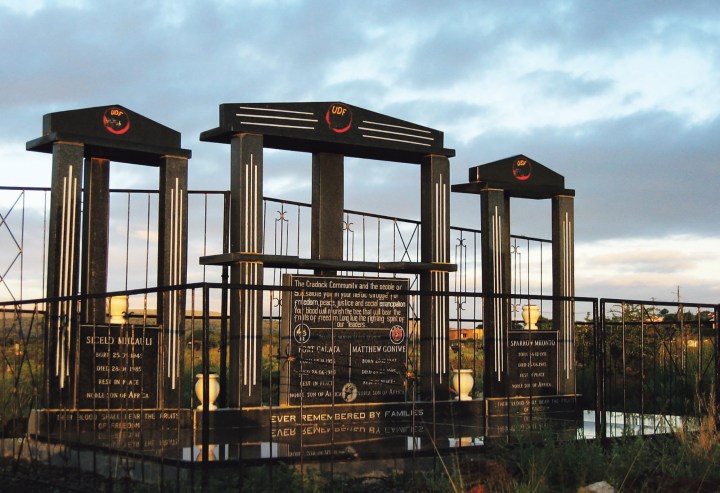
The ANC’s silent ‘policy’ and the government’s behind-the-scenes suppression of the post-Truth and Reconciliation Commission prosecutions has meant the perpetrators of apartheid’s crimes against humanity and human rights violations go unpunished. How much longer will the governing party’s selfish fears of prosecution stand in the way of tens of thousands of people’s search for justice and peace?
First published in the Daily Maverick 168 weekly newspaper.
We all know how being ignored hurts us. How much more painful, then, to have lost a loved one to cruel torture and vicious murder by apartheid security police, and then to have your pleas for justice to your new government ignored or, worse, deliberately obstructed.
The ANC government has been extremely callous towards the families of the hundreds of martyrs who gave their lives for the political liberation of South Africa during the struggle that ended nearly three decades ago.
Both the ANC and the government remain stubbornly silent on how and why they blocked the passage to justice of more than 300 cases referred in 1998 to the National Prosecuting Authority (NPA) by the Truth and Reconciliation Commission (TRC).
This decades-old can of worms is about to open up as the families’ demand for justice gains public traction, the Foundation for Human Rights (FHR) considers legal action, and the reopened inquests and subsequent cases grind slowly through the courts.
Earlier this month, the FHR wrote to the ANC’s acting secretary-general, Jessie Duarte, and the ANC’s National Executive Committee to question the ANC’s media responses.
The FHR reiterated its public calls of February 2019 and March 2020 on President Cyril Ramaphosa to initiate a commission of inquiry into why and how the post-TRC prosecutions were suppressed.
The letter was endorsed by 14 organisations, as well as some families and former TRC commissioners. Three weeks later, the ANC has still not responded.
Deliberate obstruction
The president also remains silent and unyielding, despite five public calls for him to apologise to the families and institute a commission of inquiry into what appears to have been a deliberate and illegal obstruction of justice to shield ANC members from possible prosecution.
In both June 2019 and June 2020, the families of some of those who were murdered by apartheid operatives issued public calls for the president to apologise to the families and friends of the victims and to institute an inquiry into the suppression of the cases.
The Victims Family Group includes the families of Imam Abdullah Haron, Steve Biko, Ahmed Timol, Albert Luthuli, the Cradock Four, Nokuthula Simelane, Dr Hoosen Haffejee, Matthews Mabelane, Nicodemus Kgoathe, Solomon Modipane and Jacob Monagotla.
In practice, the ANC’s silent “policy” and the government’s behind-the-scenes suppression of the post-TRC prosecutions has meant the perpetrators of apartheid’s crimes against humanity and human rights violations go unpunished.
Studies show that the pain of being ignored is as hurtful as bullying or physical pain, because social pain shares the same neural pathways as physical pain.
The silent abuse that Ramaphosa is dishing out is immeasurably painful and one of the most difficult wounds to heal. Thousands are affected.
But beyond the pain and trauma is also impunity – the belief that justice does not have to be served if it is not in your own interests. Impunity begins with the (mistaken) belief that there is no need for consequences.
Democratic South Africa’s culture of impunity began in earnest when the TRC ended in October 1998 and the state dragged its heels on prosecutions of perpetrators who made no disclosures to the commission or asked for amnesty – and then it shut down cases entirely.
In the 2015 court case in which the family of Nokuthula Simelane demanded that her torturers and killers be prosecuted, affidavits were filed by former National Director of Prosecutions (NDPP) Vusi Pikoli and Anton Ackermann, the former head of the NPA’s Priority Crimes Litigation Unit, saying their post-TRC prosecutions had been stymied by powerful politicians.
Pikoli said that “there was political interference that effectively barred or delayed the investigation and possible prosecution of the cases recommended for prosecution by the TRC…”
Pikoli cited meetings and communications with then justice minister Bridgette Mabandla, former minister of intelligence Ronnie Kasrils and then police commissioner Jackie Selebi, who had “interfered” with his mandate.
Ackerman said he believed “the NDPP was instructed at a political level to suspend these cases”.
A February 2019 letter by former TRC commissioners and 22 organisations belonging to the SA Coalition for Transitional Justice noted that “the story of post-apartheid justice in South Africa is a shameful story of terrible neglect”, with the more than 300 cases handed over to the NPA that involved torture, murder and enforced disappearances being “abandoned”.
The fact that the NPA has had eight NDPPs (an average of two-and-a-half years of a 10-year term) is testimony to the unlawful political pressure and interference they faced. Shamila Batohi, the ninth NDPP, will hopefully be free of such meddling, or able to resist.
So far, she has been largely silent on the post-TRC prosecutions. In July 2019, Batohi told Parliament the NPA was “prioritising” the prosecution of apartheid crimes, with the Hawks actively investigating 37 cases.
In the 2019-20 NPA annual report, Batohi also promised to look into all 69 deaths in detention and to review some decisions not to prosecute, but nothing specific.
To date, nothing further.
On 3 June 2019, the South Gauteng High Court issued a scathing judgment in which it said: “The NPA cannot, as it seeks to do, portray itself purely as a victim of the political machinations of the time.”
The judgment continued: “The NPA has a duty to assert its authority and independence and resist political interference. It cannot be acceptable for it to have simply allowed, as it did, the manipulation of the criminal justice system in the serious manner in which it occurred.”
But the judgment, which ordered the NPA and the executive to investigate the suppression and political interference, and provide assurances and mechanisms to ensure such behaviour could not be repeated, appears to have fallen on stony ground. Neither the government nor the ANC has moved to comply with a judgment now two years old.

The widows at a dedication of the Cradock Four memorial in Lingelihle. From left: Sindiswa Mkonto, Mbuyiselo Mhlauli (in Xhosa orange robe), a government official, Nomonde Calata (holding child) and Nyameka Goniwe (in blue). (Photo: David
Forbes)
Getting away with murder
This failure, this act of impunity, is at the very root of the rot in our country today. Fifty-four years ago, on 16 December 1966, the United Nations declared apartheid a crime against humanity. Shockingly, no apartheid politician or general has been brought to justice, except for former police minister Adrian Vlok, who in a plea bargain admitted ordering agents to assassinate cleric Frank Chikane by poison. His three co-accused likewise pleaded guilty. They received suspended sentences. Vlok had earlier asked for Chikane’s forgiveness.
The rest of the politicians, senior officials and generals literally got away with murder.
In February 2020, Imtiaz Cajee, the nephew of Ahmed Timol, wrote an open letter to the NPA. Nothing transpired. It appears there is a very powerful need in the ANC to shut down any post-TRC prosecutions.
That this is a betrayal of the rationale for the TRC and the promise to the people of SA that the perpetrators of apartheid-era human rights violations and crimes would be brought to justice under an ANC government goes without saying. This betrayal of the struggle and its martyrs has had a devastating effect on the families and friends of those who died.
The families’ letter to Ramaphosa in 2019 said “we are still very much haunted” by apartheid’s “disgraceful deed[s] that most of us have not been able to shake [them] off psychologically and socially”.
The families asked these very pertinent questions: “How can we, as a nation, become a socially safe [and] cohesive society and an ethically conscious nation if we haven’t appropriately dealt with the past? Would it ever be possible to clearly define ourselves as a nation when we [are] cognisant of the fact that we did not effectively tackle past crimes?
“In which way would we be able to truly transform … when the past offences, which have caused so many traumas, still stay within our nation?”
The president, the government, and the ANC remained silent. The families endured the silence another year.
In their second letter, in 2020, they urged the president to set up a commission of inquiry. They said they, “as victims’ families”, were “questioning why our democratically elected government continues to neglect addressing our matters, leading to our perception that the government of the African National Congress (ANC) has adopted an attitude of no concern to what was a matter of life and death for our loved ones”.
They called “the deafening silence of the ANC and the government … an insult to us and all the memory of all fallen comrades. Men and women who were callously murdered by the apartheid regime. The country and the democracy that you lead today … was gained through the blood of our martyrs. Men and women who your government has today apparently decided to banish to the dustbin of our history,” the letter said.
In 2013, Simelane’s sister, Thembi Nkadimeng, wrote that the betrayal by her democratic government “cut the deepest… We cannot bury her, and we can find no peace.”
The final straw that led the FHR and TRC commissioners to write the letter to Duarte was a bald statement by ANC legal adviser Krish Naidoo in a recent Al Jazeera documentary titled My Father Died for This. He told the interviewer that there was “no explanation” for why there had been no prosecution of the post-TRC cases and that “some matters would have slipped through the cracks, and the Cradock Four case would have been one of them”.
The letter asked whether this statement was official ANC policy. “Mr Naidoo’s response stands as a deep affront to the dignity of the families of Lukhanyo Calata, Nokuthula Simelane, Steve Biko, Ahmed Timol, Neil Aggett and hundreds of others,” the letter said, suggesting that it may have been “an attempt to mislead the public in order to shield the ANC and government from unwanted scrutiny”.
Advocate Howard Varney, the pro bono lawyer for the families, has long criticised both the government and NPA for their obstruction, of which he has first-hand knowledge.
“The failure to prosecute those who did not receive amnesty renders the amnesty process entirely meaningless,” Varney said. “It may as well have been a de facto blanket amnesty for all.”
The TRC was meant to help heal the terrible traumas and excessive barbarity of apartheid. The TRC heard from 21,519 victims telling their stories of 30,384 gross human rights violations.
The TRC Report made 15,000 findings, in 3,500 pages, and of the TRC’s 37 recommendations, most were ignored. Of the 7,115 applications for amnesty, only 1,154 were granted, with a further 250 getting partial amnesty.
Escaping prosecution
Of those who were refused amnesty, nearly all escaped actual prosecution, and only former policeman Eugene de Kock, branded as “Prime Evil” by his own men, took the fall and served a sentence. Now he is free, and the government pays his upkeep, in a secret location.
Former President PW Botha (now dead), the chair of the secret State Security Council where “permanent removal” of activists was discussed, escaped any prosecution. So did his successor, FW de Klerk, joint winner of the Nobel Peace Prize, who continues to assert he knew nothing of any illegal activities such as murder and torture.
Yasmin Sooka of the FHR said: “At the conclusion of the TRC, we former TRC commissioners were unanimous in our belief that, while our job was complete, the next stage belonged to the NPA. We expected that prosecutions would follow for those that had not come forward and applied for amnesty, or were refused amnesty.”
Clearly, the ANC has betrayed the thousands, if not millions, of people who suffered at the hands of the apartheid regime’s operatives through their own selfish fears of prosecution. There were 37 ANC figures who were meant to be prosecuted.
The ANC owes it to the nation to own up and for their members to take the pain and restore some ethics and dignity to our political system.
Oh, and can someone tell the president we need justice now? Can he respond? DM168
Apartheid killers who still walk free
It’s easy, in the hurly burly of our modern tech world, to forget that we are where we are because many people suffered torture or were murdered for their belief in a free and democratic South Africa.
It is the duty of historians and journalists to remind the nation periodically of their debt to these brave martyrs. Although many of their family members have died without seeing justice (yet), we remember the fallen as a bright light that will continue to shine no matter how much the state or political parties may try to erase their memory.
Here are some names of prominent perpetrators:
Former Police Minister Adriaan Vlok, who denied all knowledge of the killing of the Cradock Four despite visiting Cradock weeks before their death, still walks free. His co-accused in the Frank Chikane poisoning matter, Johan van der Merwe, Chris Smith, Gert Otto and Manie van Staden, were also acquitted.

Adriaan Vlok (centre), two of his co-accused and his legal team outside the North Gauteng High Court during his trial. On the far right is the lawyer Jan Wagener, who has represented many of those accused of apartheid crimes, both from the military and the police. (Photo: David Forbes)
Brigadier “Joffel” van der Westhuizen, the former military commander of the Eastern Cape, who sent the “Death Order” signal for the murder of the Cradock Four, was never brought to trial. He is also alleged to have created the secretive “black ops” Hammer Unit that was responsible for many deaths.
In the Ahmed Timol matter, the two police interrogators, Captain Johannes Gloy and Captain Johannes van Niekerk (now both dead), were still alive in 2004 when Timol’s nephew Imtiaz Cajee asked the NPA why they had closed the case (they claimed a lack of evidence). The last remaining policeman, João Jan Rodrigues, is to face trial after years of delays.
Former student spy and head of Security Police Intelligence Colonel Craig Williamson sent an operative to Cradock to see how Matthew Goniwe and Fort Calata could be killed a year before their assassination. Williamson is still free.
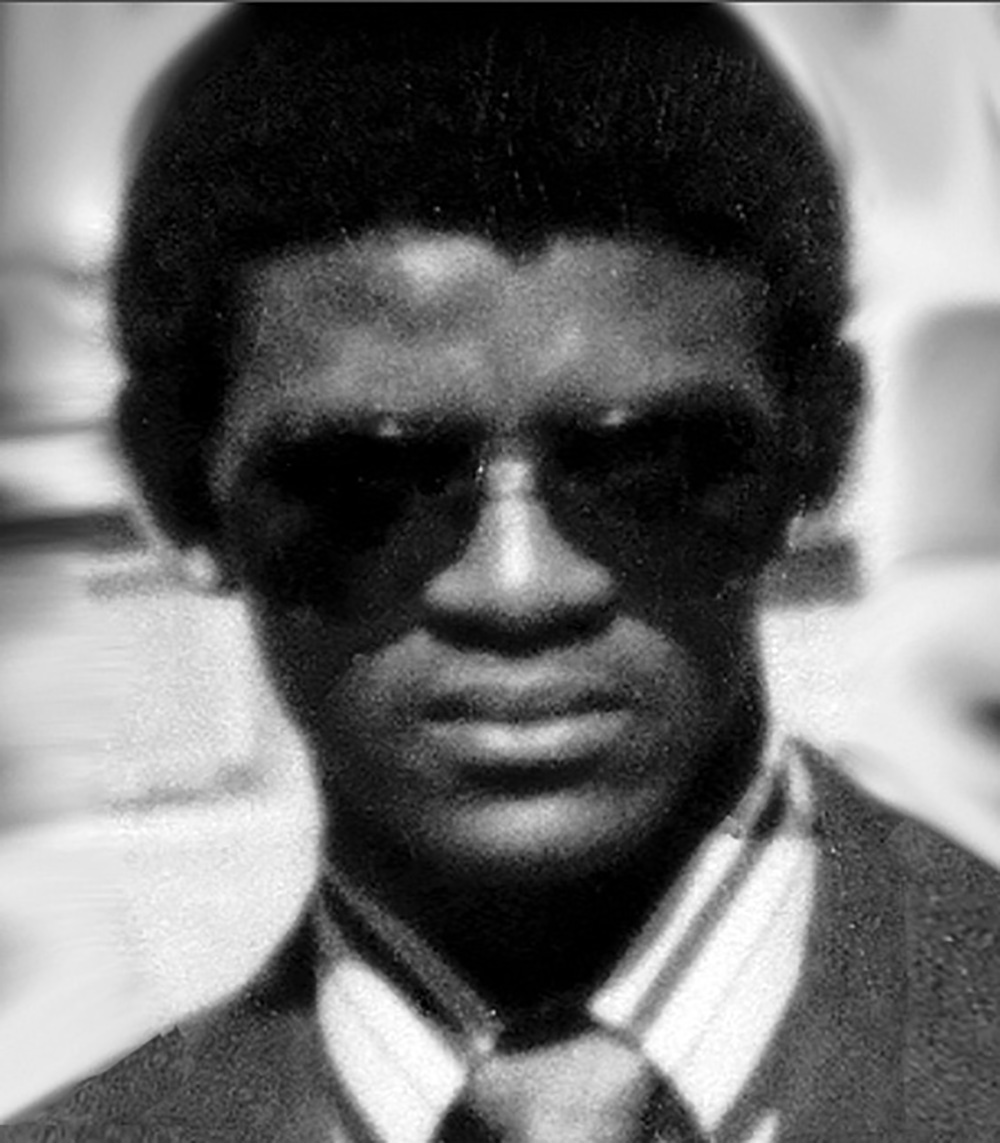
Cradock Four victim and friend of Matthew Goniwe, Fort Calata, on his wedding day.
(Photo: Courtesy of the Calata family)
Former Defence Minister General Magnus Malan (now dead) was charged with 19 other military officers for the murder of 13 people, seven of them children, in the KwaMakhutha Massacre in 1987, but they were all finally acquitted. There are other crimes to be uncovered.
Thembi Nkadimeng is still waiting to hear what happened to the remains of her sister, Umkhonto weSizwe fighter Nokuthula Simelane who disappeared in 1983. Warrant Officer Willem Coetzee, Sergeant Anton Pretorius and Sergeant Frederick Mong, together with Sergeant Msebenzi Radebe, were to face trial for her abduction and murder after a long battle to bring them to justice. Radebe is dead.
Lieutenant Colonel Eric Taylor, who personally boasted he had killed Fort Calata, is still free, despite having admitted to murder and being denied amnesty.
Lieutenant JM “Sakkie” van Zyl admitted to leading the hit squad that assassinated the Cradock Four. He later ran a successful security company, and has never been brought to justice.
Aggett’s chief interrogator, Stephen Whitehead, did not apply for amnesty, and died shortly before the inquest was reopened. Coincidence?
These are just a few prominent names. There are so many others. DM168
David Forbes is an independent social, political and economic commentator with an ecosocialist view of the world.
This story first appeared in our weekly Daily Maverick 168 newspaper which is available for free to Pick n Pay Smart Shoppers at these Pick n Pay stores.



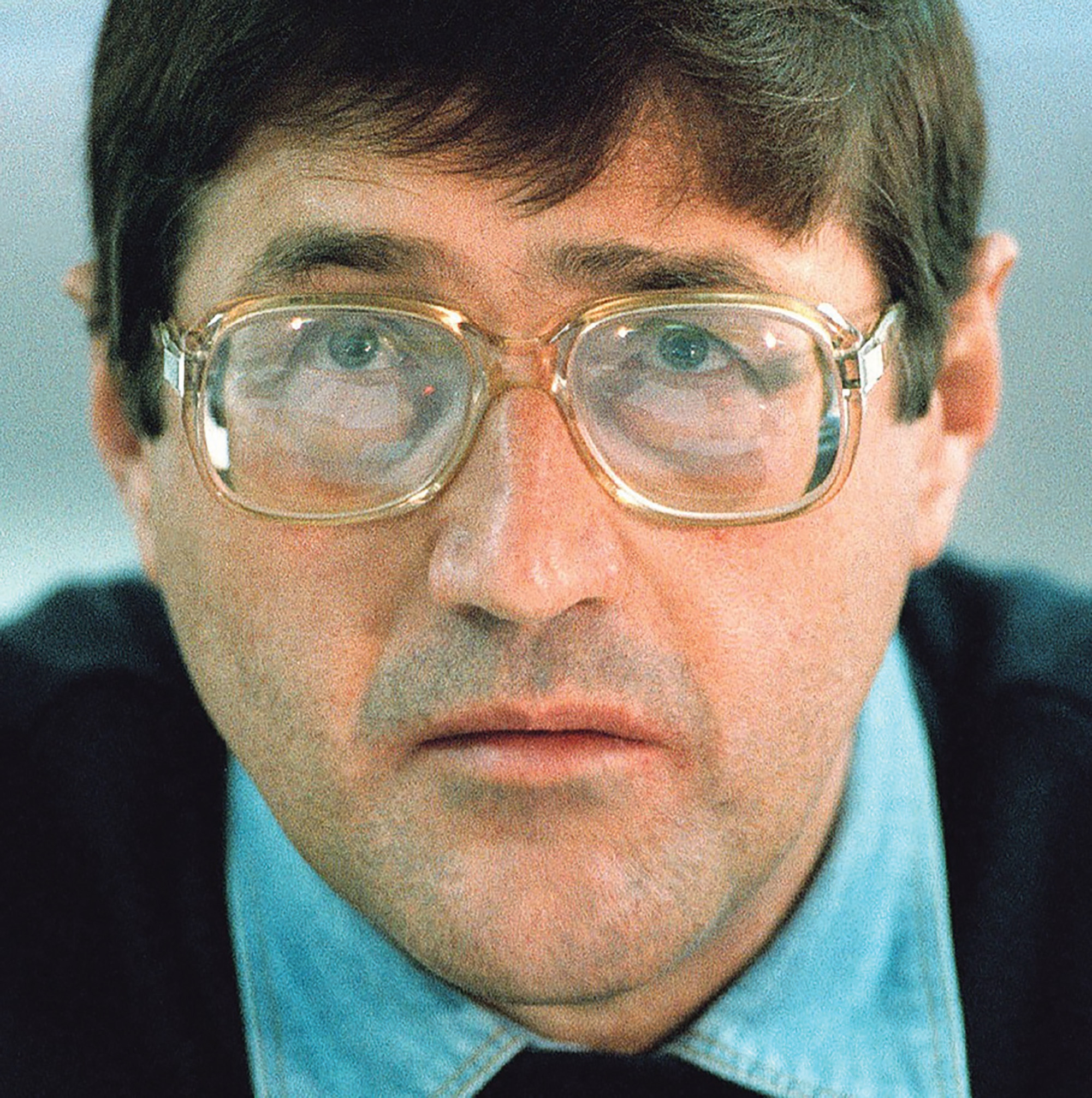
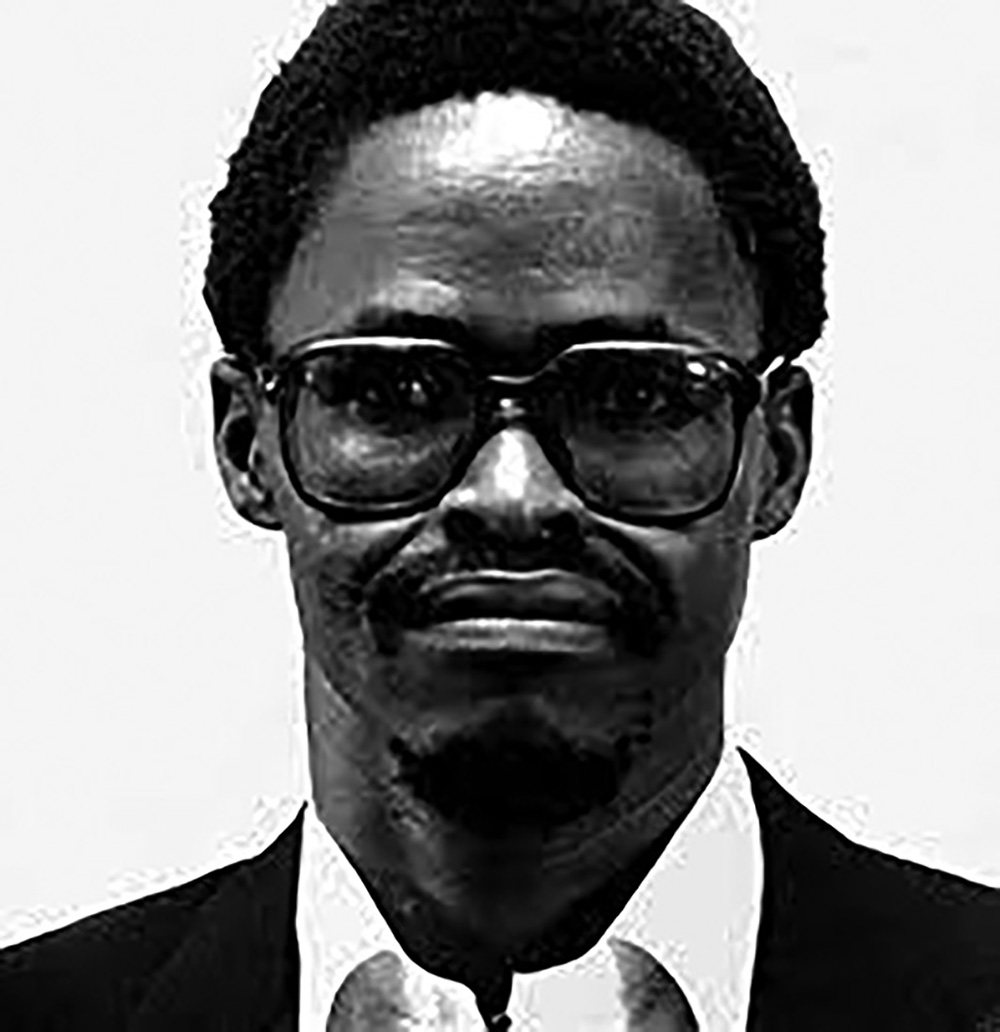

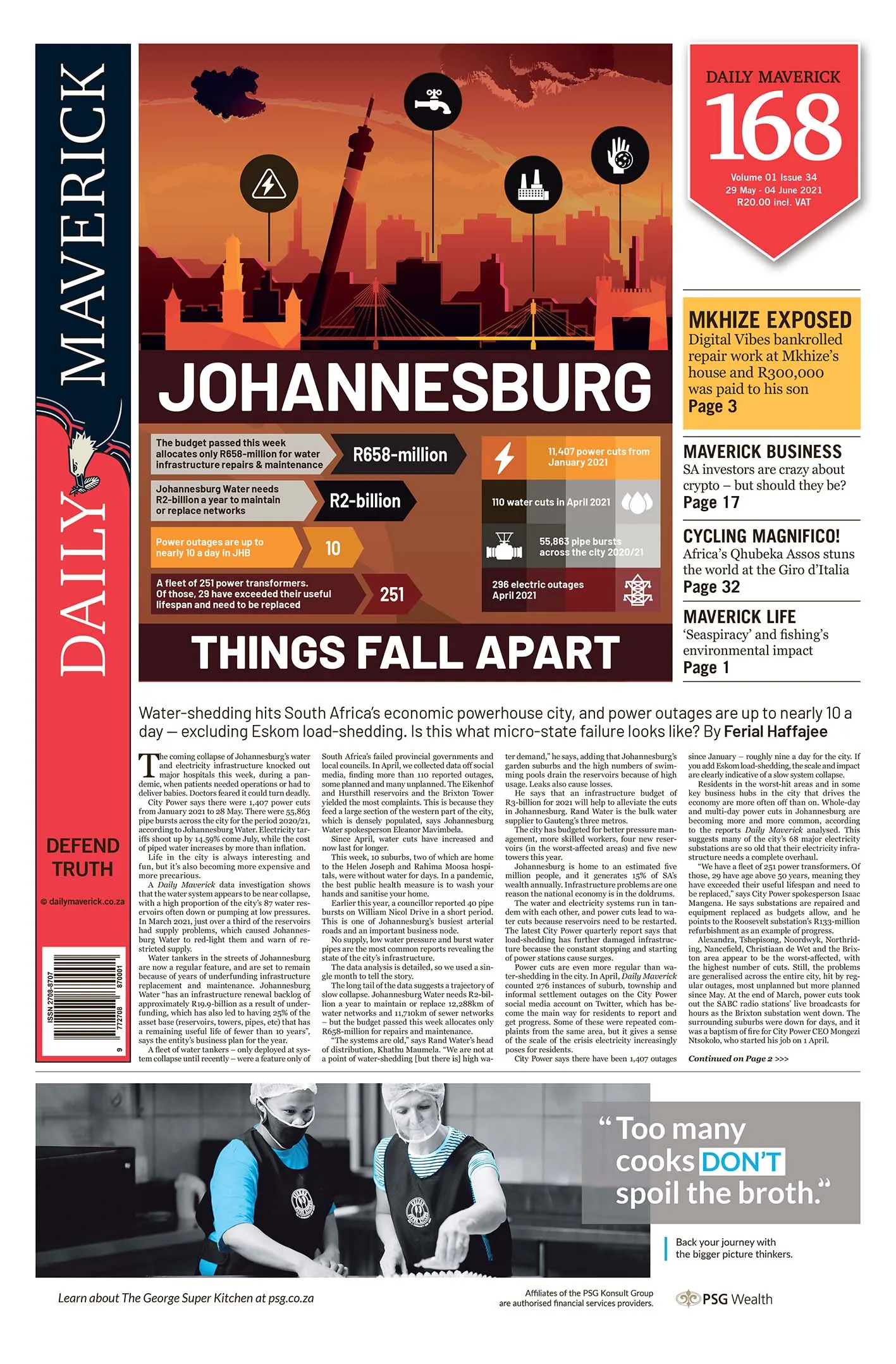



















 Become an Insider
Become an Insider
Comments - Please login in order to comment.